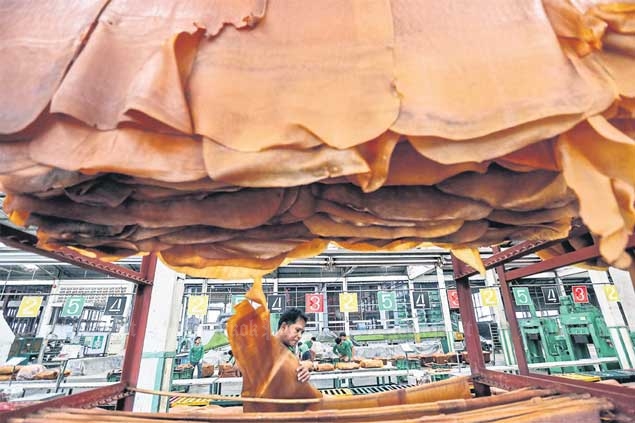
Falling rubber prices have boosted investment in rubber production in Thailand, where the supply of the commodity is in abundance and the cost low.
Luckchai Kittipol, chief executive and president of LK Rich Co, said his rubber industrial estate in Rayong had been bought by two big Chinese rubber companies -- a tyre-making factory and a rubber mattress producer. He expects more purchases will be made.
The rubber industrial estate is located on a 2,200-rai plot that was developed for building rubber-related industries, said Mr Luckchai.
"Since I have developed expertise in rubber over the years, I intend to create added value for the Thai rubber industry by diversifying businesses at an industrial estate. This is for rubber-related factories only, to encourage more investment in the commodity, which will lead to more domestic rubber consumption," he said. Mr Luckchai is also chief executive of Thai Hua Rubber Plc, one of Thailand's top three rubber exporters.
He said the total available land bank for the industrial estate could support up to five factories.
"We expect the whole land bank will be sold out by year-end," said Mr Luckchai.
He said although global rubber prices continue to fall, investors in rubber industrial sectors remain intact and plan to expand their investments as their raw material costs remain low.
"With falling rubber prices, they can have a bigger margin on their products as raw material costs are cheap," said Mr Luckchai.
The price of the world's benchmark smoked rubber sheet dropped as low as $1.27 per kilogramme, or 80% below the record high of $6.40 per kg in February 2011, because of a supply glut during a global economic slump. This decrease included a slowdown in China, the world's biggest rubber consumer.
Another factor that dragged rubber prices down was a falling oil price, which encourages tyre makers to switch to petrochemical products to produce synthetic rubber.
Mr Luckchai said his company was in talks with other investors, including some in Japan and the EU, which are interested in investing in rubber industries in Thailand.
"They are interested in Thailand because we have plenty of raw material supply here and they don't have to import to the country," he said.
Thailand ranks as the world's largest rubber producer and exporter, producing around 4.3 million tonnes per year.
